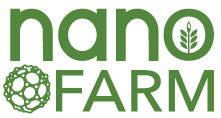
NanoFARM – Fate and Effects of agriculturally relevant Nanomaterials
While development of nano-enabled agricultural chemicals is proceeding apace, properties of these manufactured nanomaterials (MNMs) in the environment make predicting their fate in soils impossible using the risk assessment framework for traditional chemicals.
NanoFARM will modify the existing fate modelling paradigms by systematically determining how properties of agriculturally relevant nanomaterials, applied concentration, spatial distribution and temporal behaviour in different soil types, influence nanomaterials’ uptake by important crop plants, toxicity, multigenerational effects on soil organisms, bioaccumulation/trophic transfer, and potential for ecological impacts.
We will also develop necessary methods to track and characterise manufactured nanomaterials in soil at realistic concentrations, and develop a simple test for measuring dissolution rate and distribution between soil pore water and solids to predict the observed fate and effects, key assays for validating theoretical relationships developed herein.
Grant Number:
Duration: 01.03.2016 - 28.02.2019
Project Lead
Project Partners



 >
>